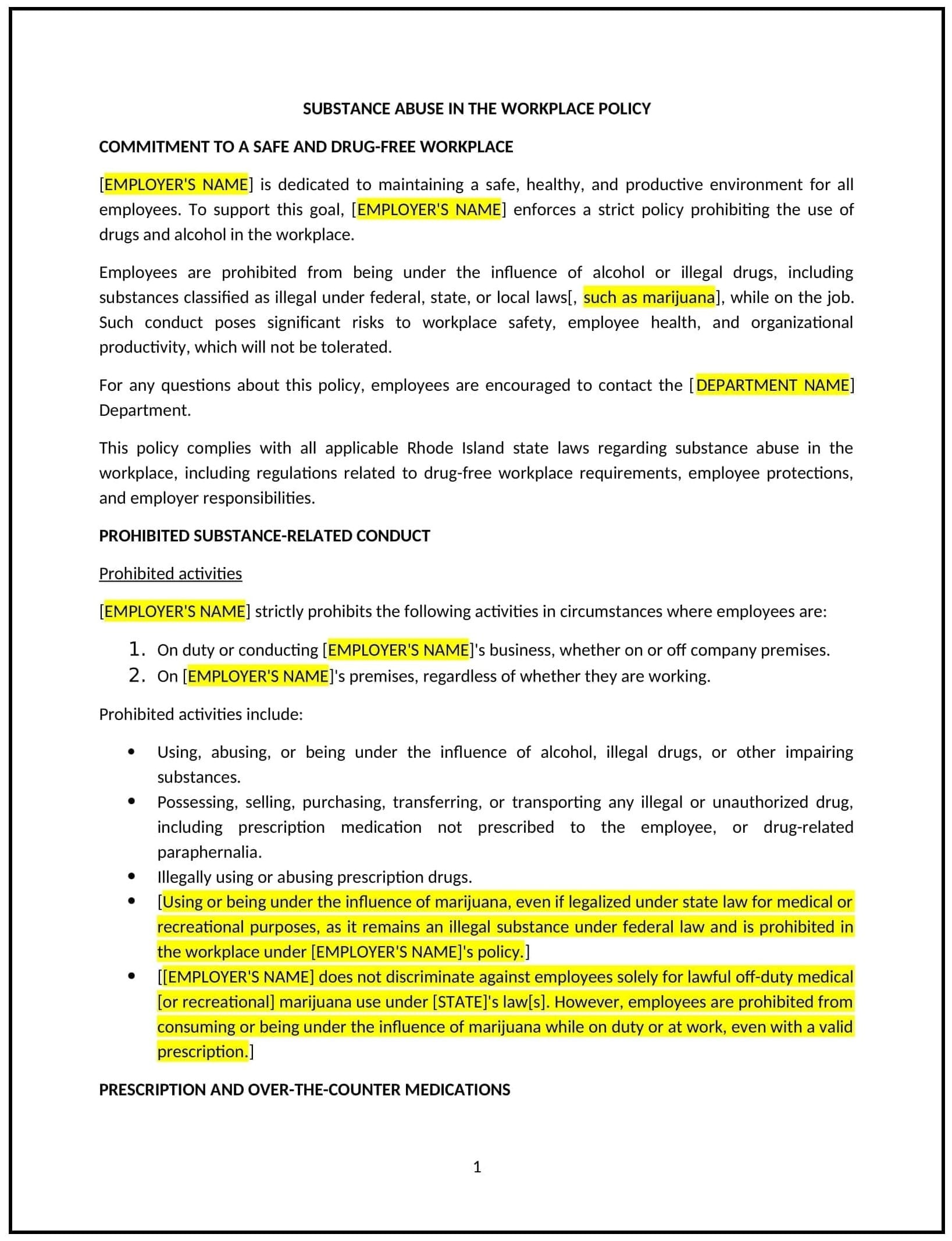Substance abuse in the workplace policy (Rhode Island): Free template
Got contracts to review? While you're here for policies, let Cobrief make contract review effortless—start your free review now.

Customize this template for free
Substance abuse in the workplace policy (Rhode Island)
This substance abuse in the workplace policy is designed to help Rhode Island businesses address the risks associated with drug and alcohol use. It outlines rules, testing procedures, and support resources for employees struggling with substance abuse.
By adopting this policy, businesses can promote safety, maintain productivity, and support employees in need of assistance.
How to use this substance abuse in the workplace policy (Rhode Island)
- Define substance abuse: Clarify what constitutes substance abuse, including illegal drugs, prescription medications, and alcohol.
- Establish rules: Prohibit the use, possession, or distribution of substances in the workplace.
- Address testing: Specify circumstances under which drug or alcohol testing may be required, such as after an accident.
- Provide support: Offer resources for employees seeking help, such as Employee Assistance Programs (EAPs).
- Train managers: Educate supervisors on recognizing signs of substance abuse and enforcing the policy.
- Review and update: Assess the policy annually to ensure it aligns with evolving business needs and legal requirements.
Benefits of using this substance abuse in the workplace policy (Rhode Island)
This policy offers several advantages for Rhode Island businesses:
- Promotes safety: Reduces the risk of accidents and injuries caused by impaired employees.
- Maintains productivity: Ensures employees are fit for work, leading to higher efficiency.
- Supports employees: Provides resources for those struggling with substance abuse, fostering a supportive environment.
- Aligns with regulations: Supports compliance with Rhode Island’s workplace safety and drug testing laws.
- Enhances reputation: Demonstrates the business’s commitment to employee well-being and safety.
Tips for using this substance abuse in the workplace policy (Rhode Island)
- Communicate the policy: Share the policy with employees and include it in the employee handbook.
- Provide training: Educate managers on recognizing signs of substance abuse and enforcing the policy.
- Monitor compliance: Regularly review workplace safety and address any issues promptly.
- Offer support: Provide resources for employees seeking help with substance abuse.
- Update regularly: Assess the policy annually to ensure it aligns with evolving business needs and legal requirements.